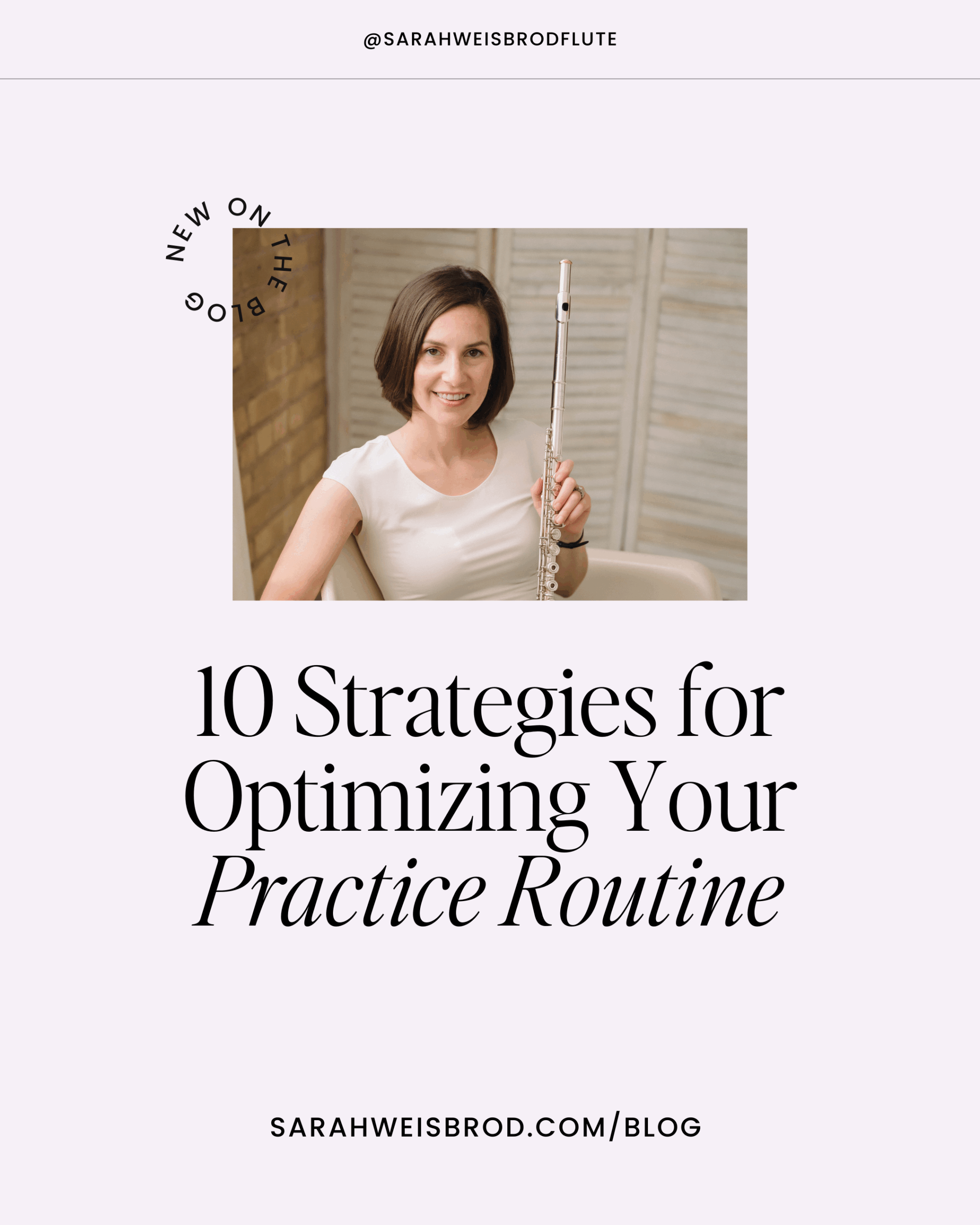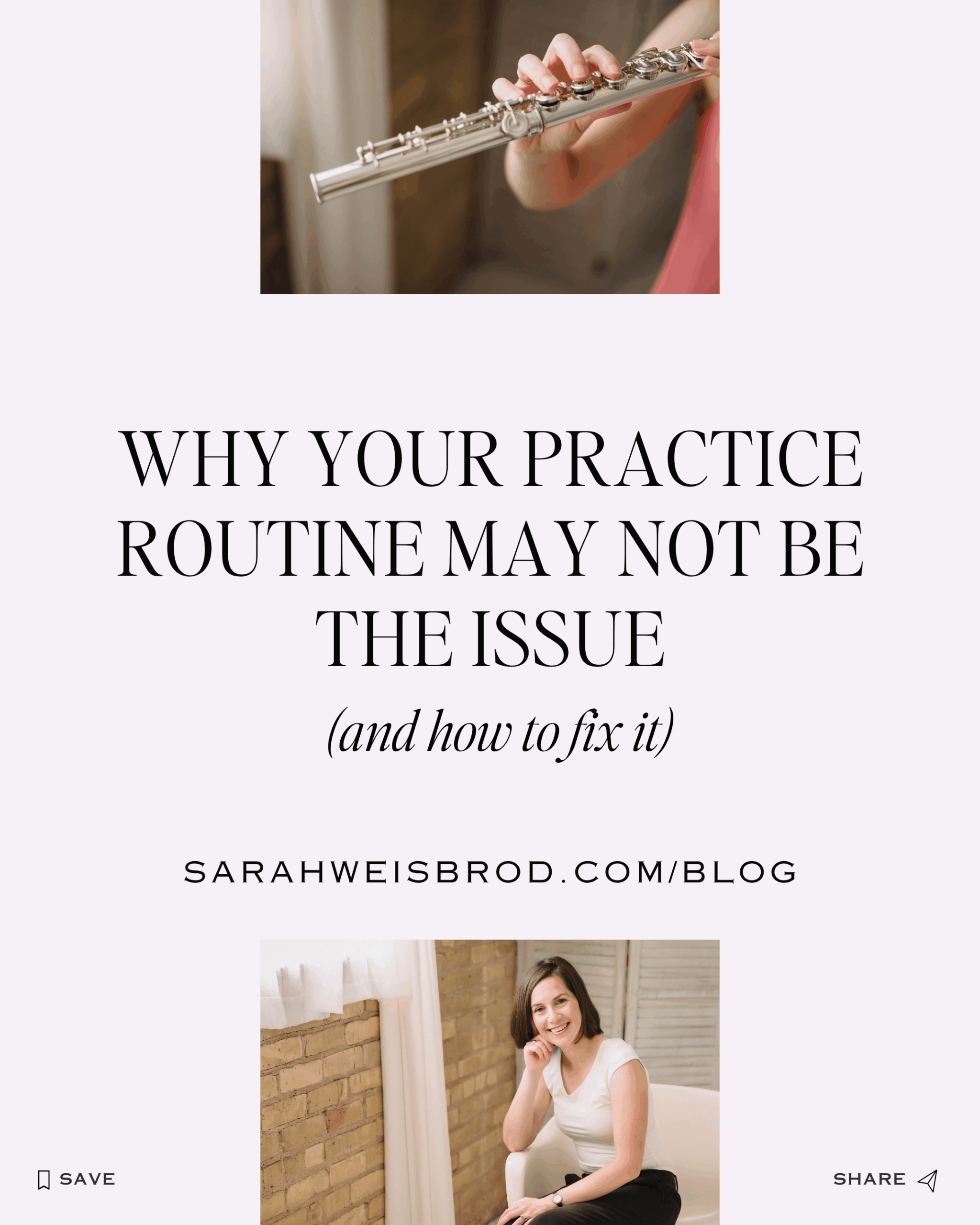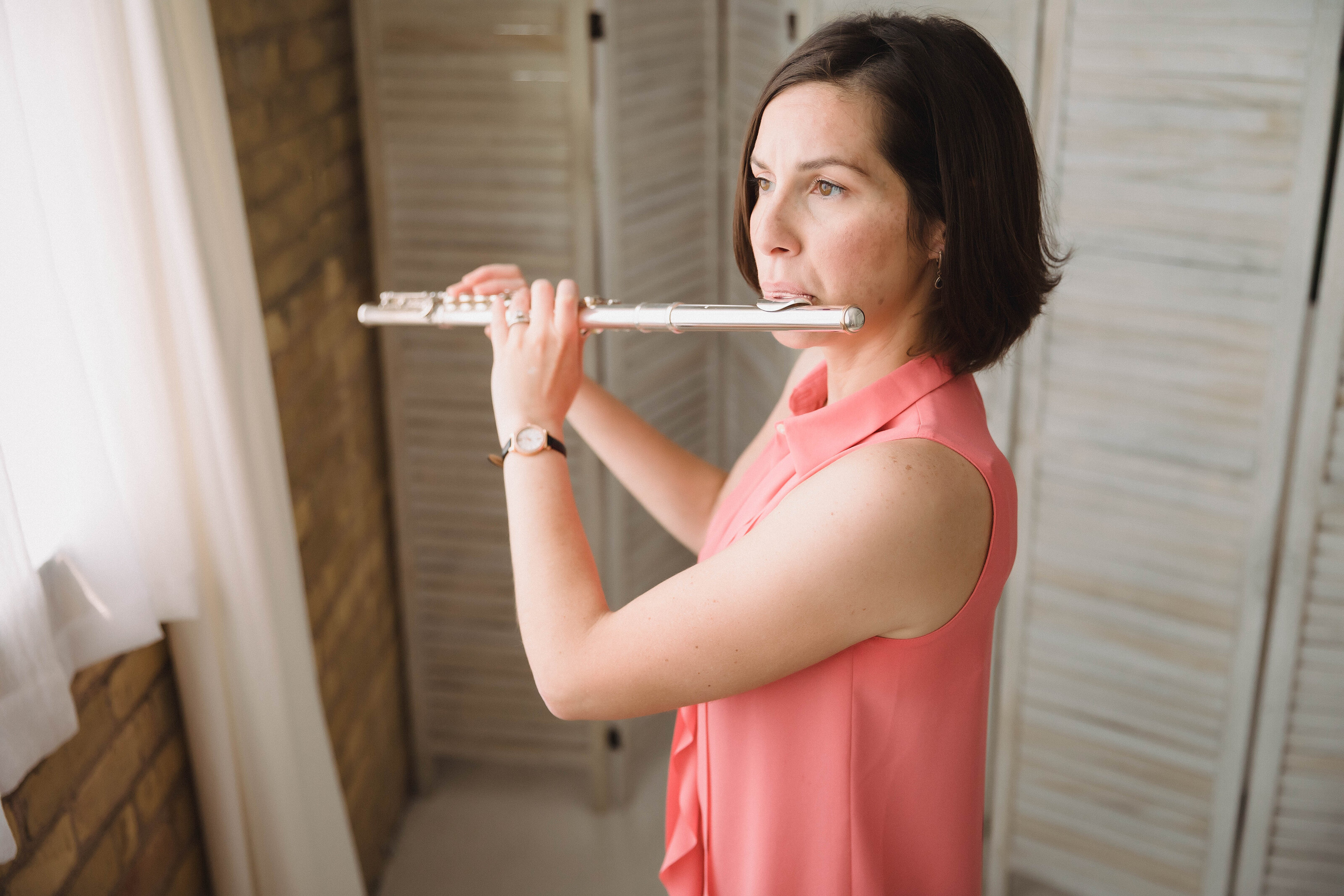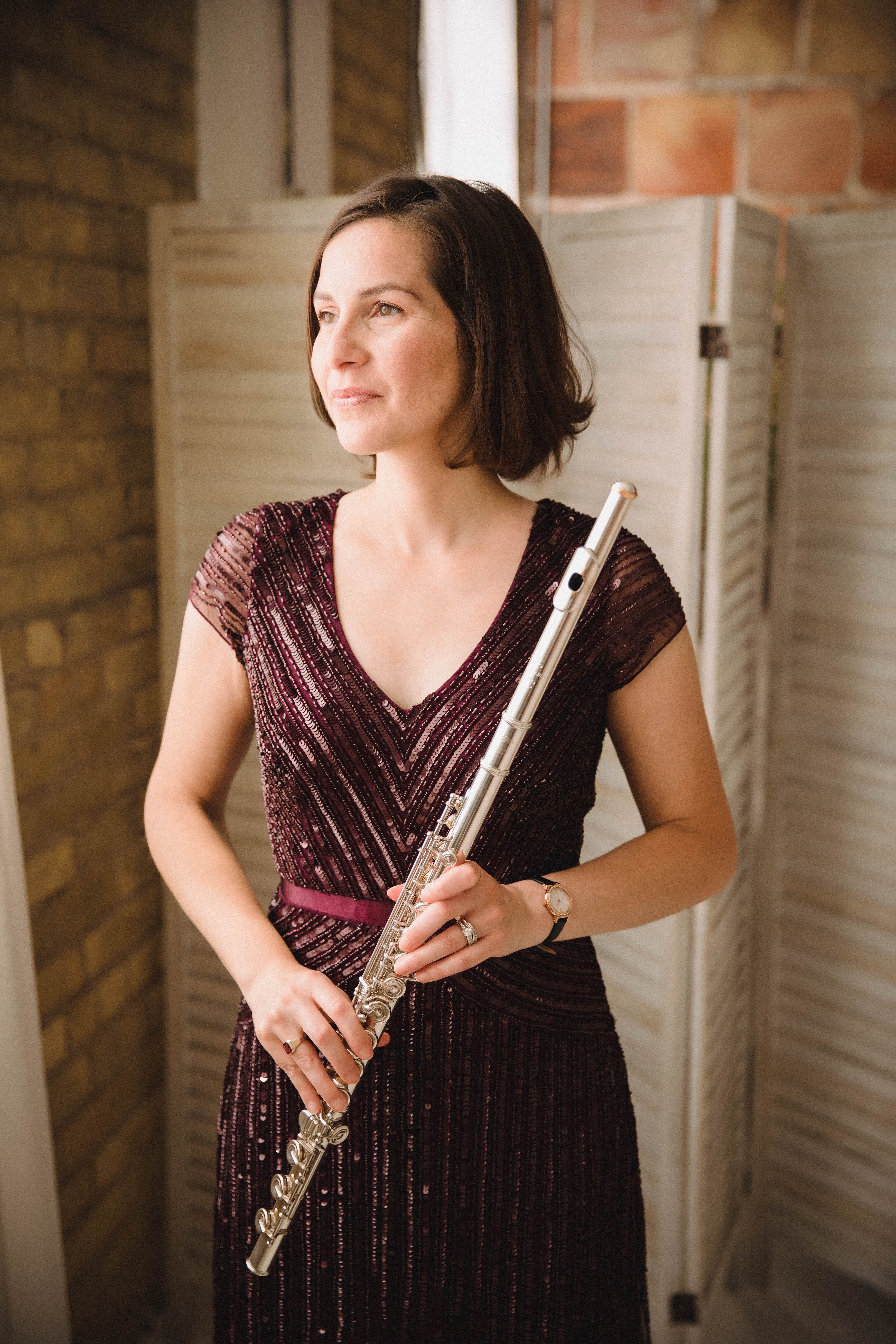

Having gone through graduate school, I know firsthand how anxiety-inducing Welcome Week can be. You’ve moved to a new place, don’t know anyone, and you have to navigate a new university system. Between getting an ID, ensemble auditions, and theory/musicology placement exams, being an incoming grad student can be overwhelming.
Trust me, I understand entirely.
We moved into our house two days before Welcome Week. As a result, I didn’t have time to take a leisurely walk around campus before Welcome Week began. That means I had to ensure I knew where everything was, the Welcome Week schedule, and what I needed to prepare for before the first day of Welcome Week.
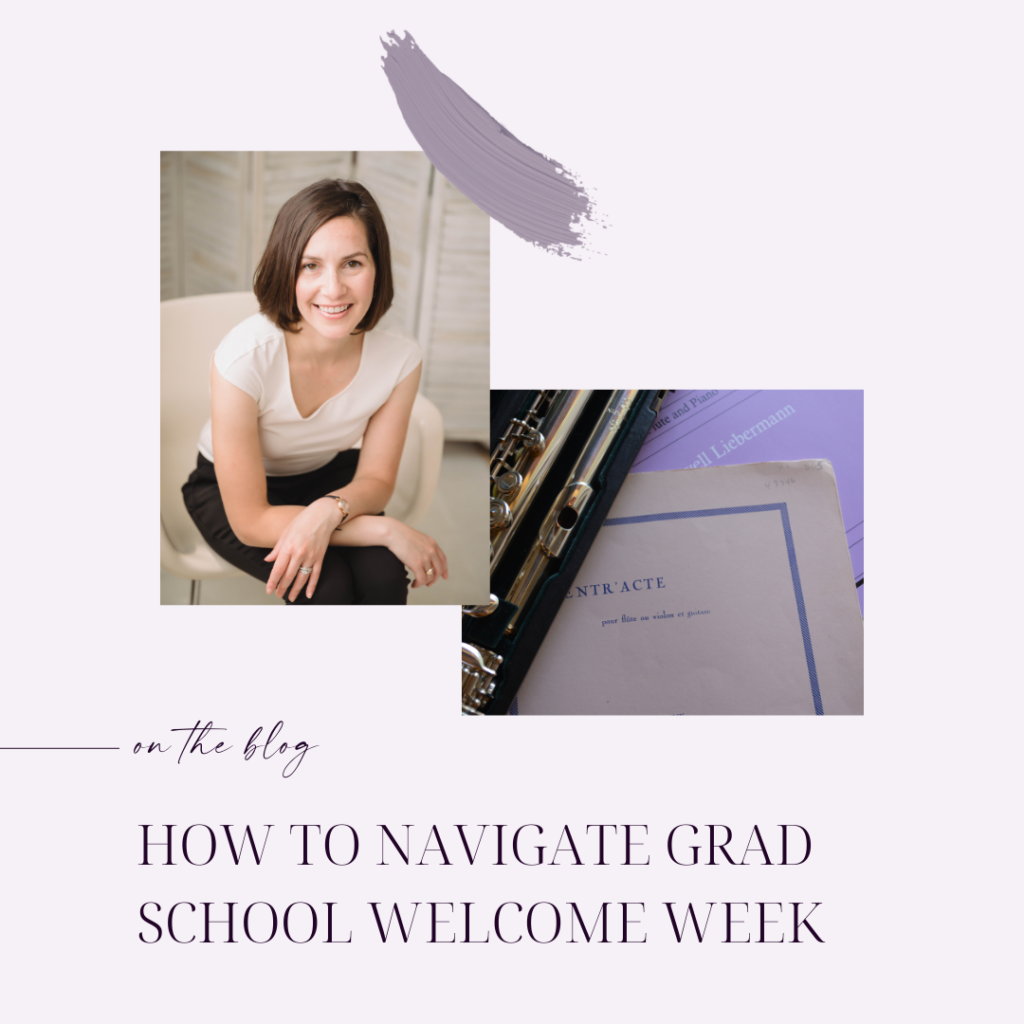
It’s important to remember, especially if you’re transitioning from undergrad to a master’s program, that you are responsible for your education. Therefore, the university will not hold your hand and walk you through IDs and course registration as they did when you were a college freshman.
That’s why I’m sharing everything you need to know for a smooth transition into graduate school. In this post, you’ll learn about:
- Getting your student ID
- Finding your way around campus
- Transportation
- Welcome Week
- Auditions, placement exams, and more
- Accessing the student handbook
- Practice Rooms
- Advising
- Course registration
The better prepared you are for Welcome Week, the better you are setting yourself up for success entering the school year. And, you’ll be less stressed because you’ll be one step ahead.
I’m giving you all the details you need to know to start the academic year successfully. Let’s dive in!
Welcome Week Tip No. 1 | Get Your University ID
Your university ID is your universal passport to numerous services at your school. Not only does it serve the obvious purpose of identifying who you are, but it also serves as your:
- Library card
- Campus Currency – at the University of Minnesota, we have something called Gopher Gold, where you deposit money into the account and pay for items with your ID
- Meal card – if you opt for a meal plan
- Security card – it lets you into the appropriate buildings on campus outside public hours
- Transportation card
- Within the school of music – practice room and locker access
You should get your school ID as soon as possible, especially if you’re moving to town in August. Waiting until a week or two before classes to get your university ID may mean standing in a long line or missing out on essential services.
Summer is a great time to get your ID if you visit your new city apartment hunting. During this time, the ID card office will likely be quiet, and you won’t have to compete with other students.
Welcome Week Tip No. 2 | Study Campus Maps
I admit it – I’m kind of a map nerd. I’m the type of person who studies Google Map directions before a trip, even though it will guide me turn by turn. So when I had to make my first on-campus visit, I made sure I knew where I was going without the assistance of my phone.
Here’s the thing: you need to know where you’re going on campus. Not only so that you won’t look like a campus newbie, but it’s also for your safety. You shouldn’t be walking around with your eyes glued to your phone, unaware of your surroundings.
Welcome Week Tip No. 2 | Plan Transportation
You need to know how you’ll get from your apartment/house/new living abode to campus. For example, are you within walking distance? Or, where will you park your car, and how much will it cost if you plan on driving?
Does your university offer public transportation through a transportation fee for all students? If so, can you take the bus or train to the university, and does public transit stop near the music building? Is there a campus-wide transportation service free of charge for university students?
These are all questions you need to answer because waiting until you must be somewhere to figure out how you’ll get there (ahem…your ensemble audition, which we’ll cover later) means you’ll likely be late.
Welcome Week Tip No. 3 | Attend Welcome Week Sessions
Welcome Week is your graduate student orientation week. Some schools may have a different name, but this is generally the week before the semester officially starts. During Welcome Week, you’ll learn about:
- Placement exams
- Ensemble auditions
- Course registration
- Lesson sign-up, practice rooms
- And everything else you need to know to navigate the music department.
If you have an assistantship, you’ll also go through the onboarding process and meet your faculty advisor during Welcome Week.
Placement exams
If you thought you were done with music theory after undergrad, think again. Unless you’re at a conservatory, you’ll have to take graduate music theory and musicology courses. Even if you’re a doctoral student, you’ll likely have to take placement exams at your new institution. Every theory and musicology department has different expectations.
Placement exams occur during Welcome Week over several days. For example, you may have the ear training exam one day, the written theory exam the next day, and the final day the music history exam.
It’s important to know when these are given because failure to take them may mean you have to take remedial courses, which may set you behind in your degree program. And depending on your score, you may have to take some remediation even if you take them.
After you receive your placement exam scores, faculty from the theory and musicology departments are typically available to answer your questions and suggest fall courses for you to take.
Ensemble Auditions
Ensemble auditions typically occur before the semester begins or in the first week. Often, the required excerpts are released in advance. Check your music department’s website to see when the excerpts are available and how to access them.
Since COVID, many auditions are still held via recorded audition. Be sure you know whether your ensemble audition will be in-person or recorded. If it’s the latter, allow enough time to record your audition. I find recorded auditions more nerve-wracking than live ones because there’s always the thought of, “Oh, I can just do another take.” This can easily make a recording session last twice as long. So, if you are recording an audition, allow several sessions to get the right take.
Course Registration
Many universities have a penalty for late registration, meaning you register for classes after the first day of the semester. To avoid this, sign up for applied lessons at the minimum. Because every school has a different policy on course registration, consult the music department’s handbook or work with your advisor or graduate program coordinator.
After you take your placement exams, you’ll know which types of theory and music history courses you need to take. Work with your advisor to create a course schedule and register for classes.
Pro tip: you should always be planning ahead in your degree. Too often, students don’t know how many credits they need for theory and music history. As a result, they rush to fill credits in their final semesters when they’re likely preparing their Master’s thesis or doctoral dissertation. So do the heavy lifting earlier rather than later.
Lesson Sign-up
Make sure you’ve registered for the appropriate type of lessons when registering for classes. For example, undergraduate lessons often have a different course number and credit load than graduate-level lessons.
Consult your lesson professor to see when you can sign-up for a lesson time. Some professors prefer a paper sign-up on their door, while others use a Google studio calendar. By Welcome Week, you should have heard from your major lesson professor. If not, email them about lessons and ask if you missed anything. Remember, you’re responsible for your own education.
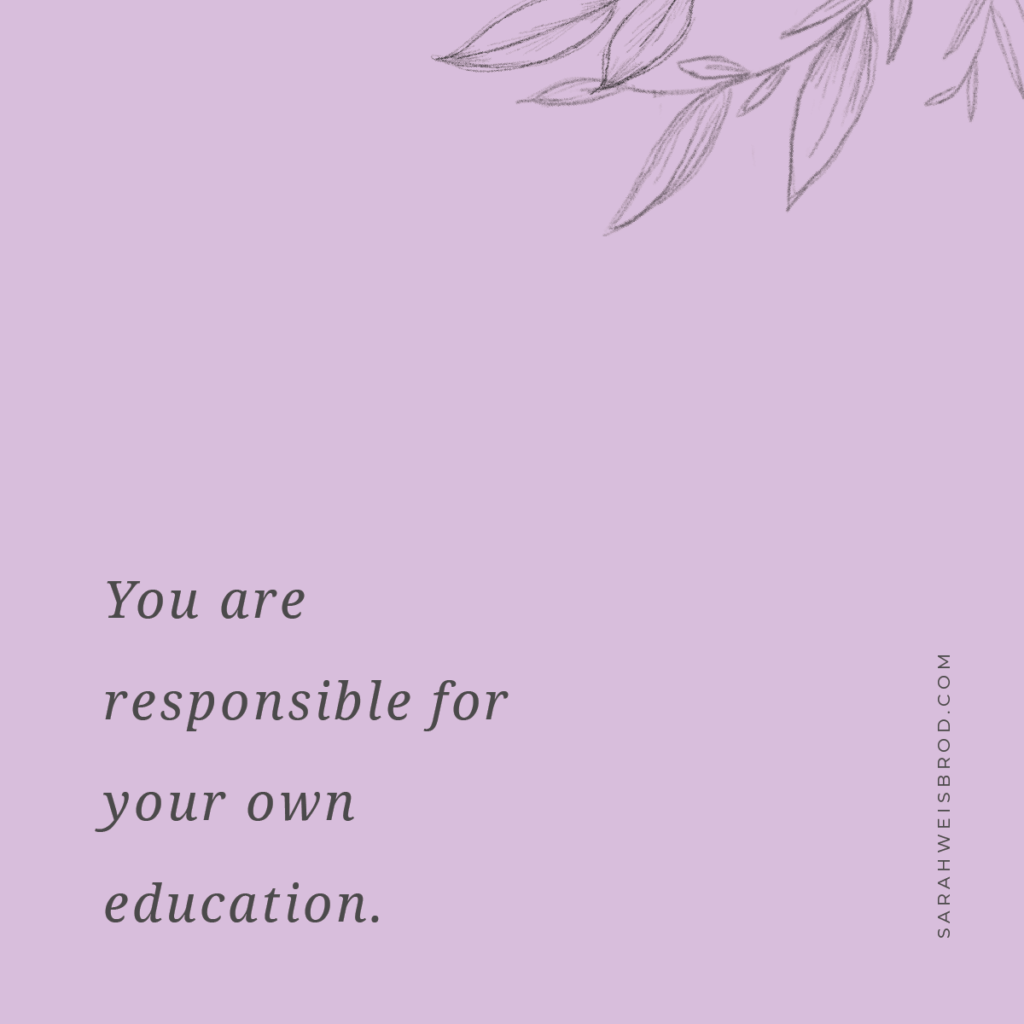
Welcome Week Tip No. 4 | Learn How to Access Student Resources
Universities often have a student portal or website where students can find crucial information regarding course registration, the student handbook, financial aid, grants, ensemble information, etc. At some schools, this is an Intranet accessible only to enrolled students; at others, it’s publicly accessible.
Make sure you find out where your resources are located. As I mentioned above, you are responsible for your education, which means you need to seek the answers to questions you may have.
Welcome Week Tip No. 5 | Find Out How to Contact Your Graduate Program Coordinator
Don’t be afraid to ask questions. Many schools/music departments have a graduate program coordinator (GPC) – yours may have a different name – to assist you as you transition into the graduate program. They are there to answer any questions about scheduling, course registration, degree requirements, placement exams, etc.
When preparing to begin my master’s, I reached out to the GPC numerous times throughout the summer to ensure that I wasn’t missing anything once Welcome Week hit. It’s best to be prepared when going into something new rather than being clueless and panicky while preparing for auditions and navigating a new environment.
Welcome Week Tip No. 6 | Learn How to Access the School of Music/Department Handbook
Your school of music or department will have a student and faculty handbook accessible to you. It may be publicly available on the music department’s website, or you may need to access it via a portal such as an Intranet.
The student handbook is your one-stop shop for everything you need to know about course offerings, recital information, course registration, degree requirements, and the logistics of navigating the department. So be sure to read it carefully.
Welcome Week Tip No. 7 | Figure Out Your Advisor
Like in undergrad, you will be assigned an advisor who will work with you on your course registration each semester. Your advisor also guides you through your degree progress. If your advisor isn’t your primary applied lessons professor, reach out to your advisor and schedule a meeting to review your classes and degree plans.
My advisor was my applied instrument professor. Even though I often asked him small logistical questions at the beginning or end of lessons, I also met with him outside of lessons to ensure I had all my ducks in a row regarding degree progress. So, again, don’t be afraid to ask questions or seek guidance.
Welcome Week Tip No. 8 | Register for Practice Room Access
Find out your school’s practice room policy before you need to practice. At some universities, you need to register for practice room access; at others, it’s first come, first serve. The student handbook should have instructions and information about your school’s practice room policies.
If you need to register for practice room access, do so in advance. Many universities still allow employees to work from home, meaning someone may or may not be working in the music office. This means it could take up to a week after you submit your request for practice room access for it to be approved. That being said, during Welcome Week, the office is often staffed, so requests are filled quicker.
Welcome Week Tip No. 9 | Locate the University’s Academic Calendar
This might seem obvious, but knowing how to access the academic calendar and find important dates is essential. Those include the first and last day of classes, finals, and significant breaks. Also, many universities have a policy where you must be in attendance for the first day of class.
There you have it. From getting your student ID, figuring out campus transportation, and Welcome Week logistics, you’re prepared to successfully navigate the first few weeks of grad school.
I want to hear from you. What steps are you taking to prepare for your first few weeks of the academic year? Have something you think I should add to this post? Comment below.
Looking to spice up your daily long tone routine? Check out my Expressive Long Tones practice guide.

LOVE THIS POST AND NEED TO SAVE IT FOR LATER?
CLICK THE IMAGE BELOW TO PIN IT!

+ view the comments
Paragraph
for when you're ready—
🎯 1. 60-Minute Strategy Session
Big performance, audition, or jury on the horizon? In this one-off intensive, we audit your current practice, map out a data-driven plan, and troubleshoot the spots that keep falling apart under pressure—so you walk away with a clear roadmap, not more question marks. Book your Strategy Session →
🔥 2. Practice Strategy Intensives
Ever wonder why your practice works… until it doesn’t? Inside Practice Strategy Intensives, we audit your current practice, map out a data-driven plan, and troubleshoot the spots that keep falling apart under pressure—so you walk away with a clear, sustainable roadmap that holds up under performance pressure. Learn more about Practice Strategy Intensives →
📚 3. The Practice Code for Musicians
Want a complete practice system instead of piecing tips together from Instagram? My signature course blends strategy, mindset, and artistry to show you exactly how to practice for confident, consistent performances—on stage, in the studio, and at the stand. Join the waitlist here →
✉️ 4. Stay in the loop (and in the practice room).
Not ready for a full commitment yet? Get weekly practice tips, mindset tools, and behind-the-scenes stories straight to your inbox—plus first dibs on new offers. Join the newsletter →
You deserve to have a musical toolkit that allows you to thrive. I combine my expertise as a professional flutist and software developer to give you a methodical, science-backed approach to learning even the most difficult music efficiently and effectively.
I combine it with elements of the Alexander Technique and the art of musical storytelling and interpretation to help you eliminate anxiety and perform effortlessly and with ease. Your playing matters—you have something to say, and I'm here to help you say it.

featured
Feeling inspired to practice this summer but not sure what you should be doing? I’ve totally been there before. 🙌 When I was a college student, my teacher would send me on my way at the end of each year with my new recital repertoire in hand. It was exciting, but it was also somewhat […]
GETthe COMPLETE STEP-BY-STEP GUIDE to FLUTE VIBRATO
If you're ready to achieve a natural-sounding vibrato, this is the guide for you—featuring a 5-step tutorial walking you through learning flute vibrato from scratch.
Inside you'll learn:
- How find the reaction in your sound.
- How vibrato is produced in the body.
- Why you need a flexible vibrato.
- What types of vibrato to use in your repertoire.
- How to practice vibrato.
YES, I'll TAKE THAT DOWNLOAD
hot off the digital shelf
GETthe COMPLETE STEP-BY-STEP GUIDE to FLUTE VIBRATO
MORE TO EXPLORE
My 5 Favorite Venues in Southern Tennessee
Read on the Blog
You Don't Need *This* $$$ Wedding Vendor
Read on the Blog
Let’s fix what’s not working—so you can get back to playing, teaching, and creating with confidence.
learn about flute lessons
explore coaching options
get help with your tech stack
© Sarah Weisbrod 2026. All rights reserved.
Legal | Site Credit | Photography by AMG Photography
